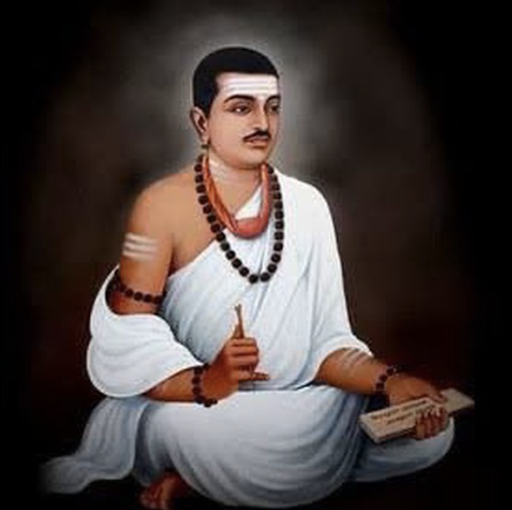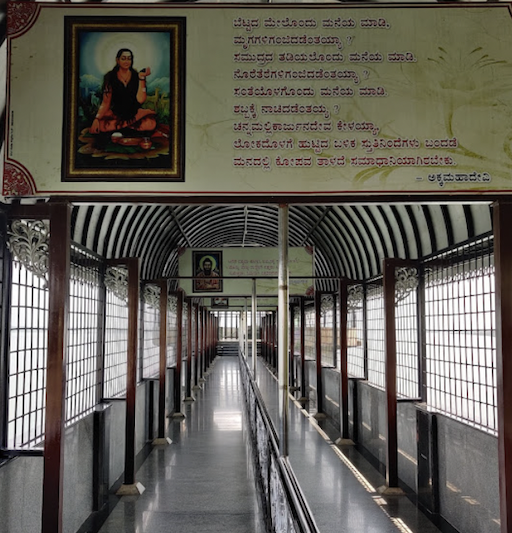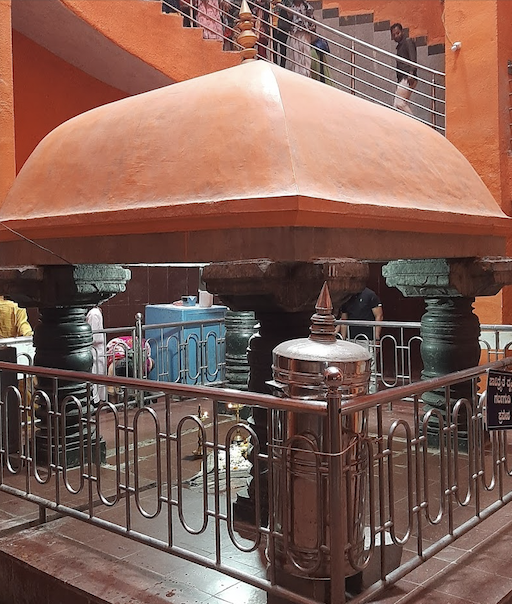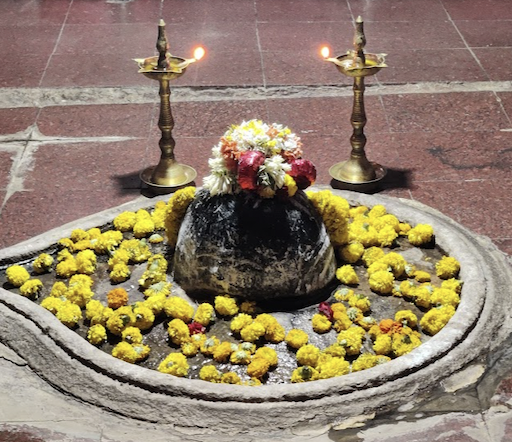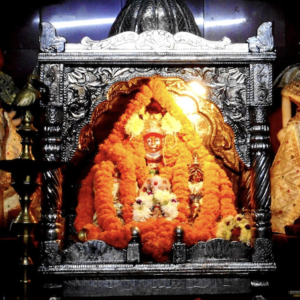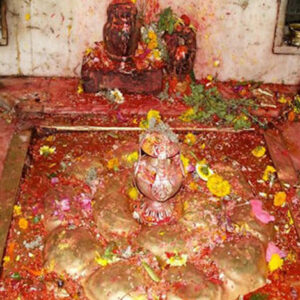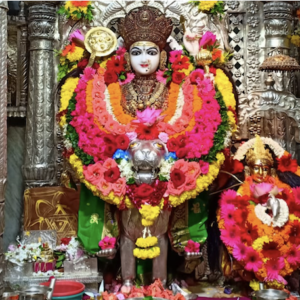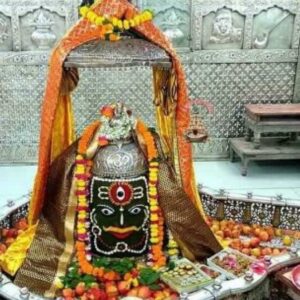This is a Samadhi of Basava.
There is a place to sit and meditate. You can go into meditative states here effortlessly.
How to get there:
The temple is located 20.3 kms North of Hundgund.
Map: https://maps.app.goo.gl/JZ7uUTpVzEc1o4s79
About Basava
Kudalasangama[1] (also written as Kudala Sangama) in India is an important centre of pilgrimage for Lingayats. It is located about 15 kilometres (9.3 mi) from the Almatti Dam in Bagalkote district of Karnataka state. The Krishna and Malaprabha River rivers merge here and flow east towards Srisailam (another pilgrim center) Andhra Pradesh. The Aikya Mantapa or the holy Samādhi of Basavanna, the founder of the Lingayatism along with Linga, which is believed to be self-born (Swayambhu), is here. The Kudala Sangama Development Board[2] takes care of the maintenance and development.
Basava (1131–1196), also called Basaveshwara and Basavanna, was an Indian philosopher, poet, Lingayat social reformer in the Shiva-focused bhakti movement, and a Hindu Shaivite[4] social reformer during the reign of the Kalyani Chalukya/Kalachuri dynasty. Basava was active during the rule of both dynasties but reached the peak of his influence during the rule of King Bijjala II in Karnataka, India.[2][5][6]
Basava spread social awareness through his poetry, popularly known as Vachanaas. He rejected gender or social discrimination, superstitions and rituals[1] but introduced Ishtalinga necklace, with an image of the lingam,[7] to every person regardless of their birth, to be a constant reminder of one’s bhakti (devotion) to Shiva. A strong promoter of ahimsa, he also condemned human and animal sacrifices. As the chief minister of his kingdom, he introduced new public institutions such as the Anubhava Mantapa (or, the “hall of spiritual experience”),[8] which welcomed men and women from all socio-economic backgrounds to discuss spiritual and mundane questions of life, in open.[9]
The traditional legends and hagiographic texts state Basava to be the founder of the Lingayats. However, modern scholarship relying on historical evidence such as the Kalachuri inscriptions state that Basava was the poet philosopher who revived, refined and energized an already existing tradition.[1][2][10] The Basavarajadevara Ragale (13 out of 25 sections are available) by the Kannada poet Harihara (c. 1180) is the earliest available account on the life of the social reformer and is considered important because the author was a near contemporary of his protagonist.[11] A full account of Basava’s life and ideas are narrated in a 13th-century sacred Telugu text, the Basava Purana by Palkuriki Somanatha.[12]
Basava literary works include the Vachana Sahitya in Kannada Language. He is also known as Bhaktibhandari (lit. ’the treasurer of devotion’)[13] and Basavanna.
Early life
Basava was born in 1131 CE[1] in the town of Basavana Bagewadi in the northern part of Karnataka, to Maadarasa and Madalambike, a Kannada Orthodox Brahmin family[14] devoted to the Hindu deity Shiva.[10][13][15] He was named Basava, a Kannada form of the Sanskrit Vrishabha in honor of Nandi bull (carrier of Shiva) and the local Shaivism tradition.[15]
Basava grew up in Kudalasangama (northwest Karnataka), near the banks of rivers Krishna and its tributary Malaprabha.[10][13] Basava spent twelve years studying in the Hindu temple in the town of Kudalasangama,[13] at Sangameshwara then a Shaivite school of learning, probably of the Lakulisha-Pashupata tradition.[15]
Basava married Gangambike,[13] a cousin from his mother’s side. Her father was the provincial prime minister of Bijjala, the Kalachuri king.[10][15] He began working as an accountant to the court of the king.[13] When his maternal uncle died, the king invited him to be the chief minister. The king also married Basava’s sister named Nagamma.[10]
As chief minister of the kingdom, Basava used the state treasury to initiate social reforms and religious movement focussed on reviving Shaivism, recognizing and empowering ascetics who were called Jangamas.[10] One of the innovative institutions he launched in the 12th century was the Anubhava Mantapa, a public assembly and gathering that attracted men and women across various walks of life from distant lands to openly discuss spiritual, economic and social issues of life.[9] He composed poetry in local language, and spread his message to the masses. His teachings and verses such as Káyakavé Kailása (Work is the path to Kailasa [bliss, heaven], or work is worship) became popular.[16]
Read More
https://en.wikipedia.org/wiki/Kudalasangama
https://en.wikipedia.org/wiki/Basava
